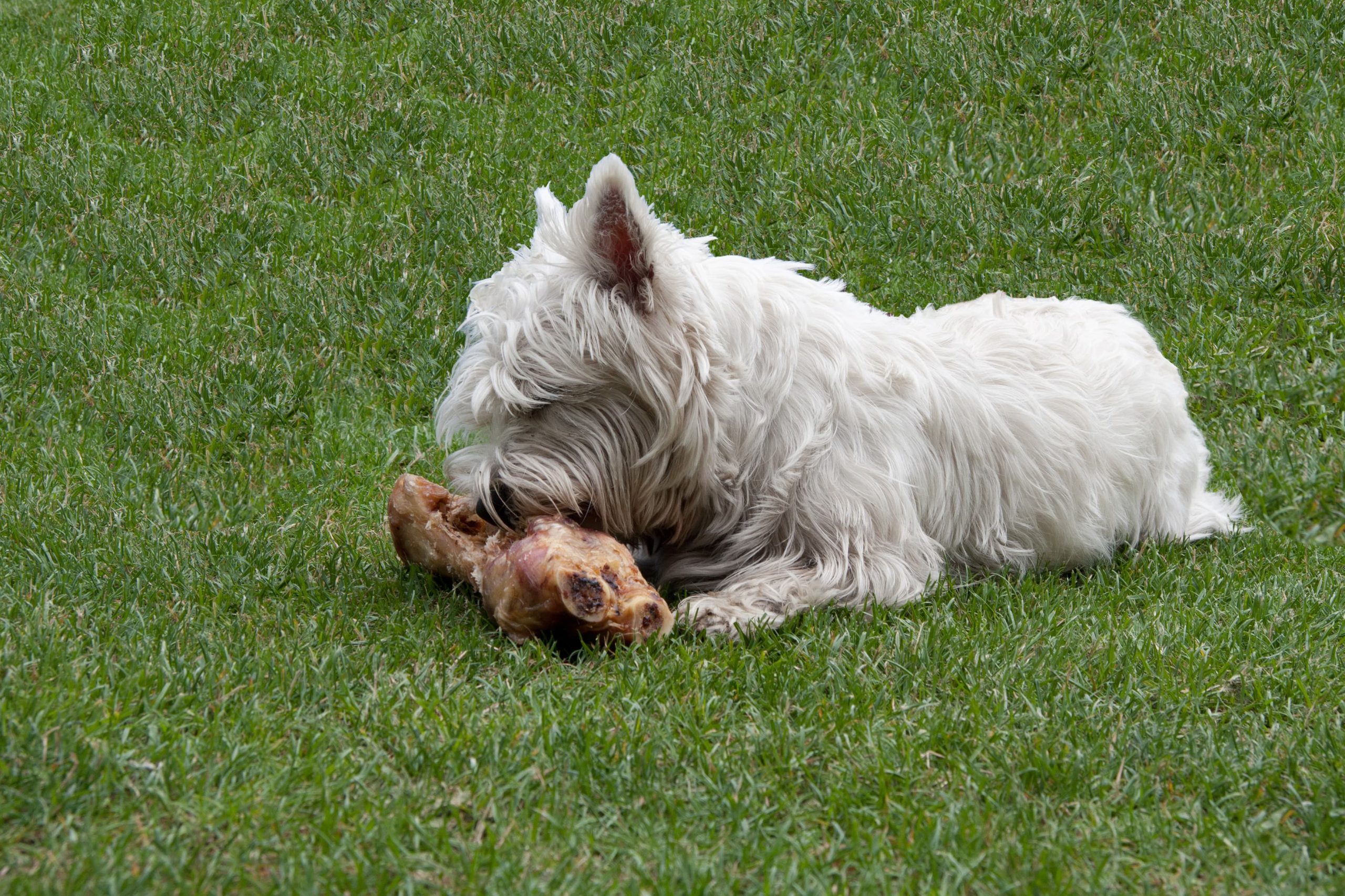
Westie Feeding & Nutrition
The optimal choice for nourishing your West Highland White Terrier is a raw food diet. This natural and holistic approach not only promotes the overall health and happiness of your dog but also serves as a preventive measure against various common health issues. These include obesity, joint problems, dental and digestive issues, as well as allergy symptoms like excessive itching and skin complaints.
When determining the most suitable food for a West Highland White Terrier, it is crucial to take into account their anatomy and digestive system. The canine digestive system has undergone minimal changes since the time of undomesticated wolves, making it best suited for fresh, high-protein diets primarily composed of meat, bones, and offal. This dietary approach, known as ‘species-appropriate nutrition,’ aims to emulate a natural, raw diet.
An ideal diet for a West Highland White Terrier is one that is well-balanced and tailored to their life stage and energy requirements. This typically involves a combination of top-quality protein, healthy fats, essential vitamins, minerals, and fiber sourced from vegetables and berries.
The anatomical structure of a dog’s stomach is not adapted for the digestion and fermentation of carbohydrates, which are the primary components of conventional kibble. Even grain-free kibble often contains substantial amounts of starchy carbohydrates like rice, potato, legumes, and lentils. Feeding dogs kibble places strain on their digestive systems, leading to spikes in insulin, glucagon, and cortisol throughout the day, thereby taxing the pancreas.
The inclusion of inappropriate ingredients and the intense heat processing used in kibble manufacturing denature the nutrients, resulting in the formation of advanced glycation end-products (AGEs). AGEs can trigger inflammation and burden vital organs, potentially leading to various serious health conditions.
While dogs are known for their resilience, the ability to adapt and survive on a diet lacking essential natural components is not synonymous with thriving. There exists a significant distinction between mere survival, and the optimal well-being of your little friend.
If you’re not able to provide your Westie with a raw diet and instead wish to feed dry food, you should stay away from mainstream big brands and look closer at the smaller brands and even your local independent pet shop’s own brand. Own-brand kibble is often the same as the low volume but very high quality (expensive) brands but available from your local independent retailer for a much lower cost. Pay close attention to the ingredients list of any packaged feed you buy and try to stay away from products which contain fillers such as grain.
Treats
Like all dogs, Westies love their treats but as above, it’s best to feed them only high quality natural products.
Although they have small mouths and teeth, they particularly enjoy the harder natural chews such as Bully Sticks which also double-up as a dental aid and can help to scrape away tartar to keep teeth in tip-top shape. The highest quality Bully Sticks like the ones from Primo Bully contain lots of vitamins and minerals and also won’t stain your Westies white fur, unlike other treats which can cause discolouration.
Westies have an insatiable desire to chew and this is a completely normal and thoroughly enjoyable activity for them, which also helps to relieve stress and keeps them entertained. Rawhide chews should be avoided at all costs as the vast majority of them originate from East Asia and are very low quality with harsh chemicals being used when manufacturing, which often linger on the product and can make dogs sick.
